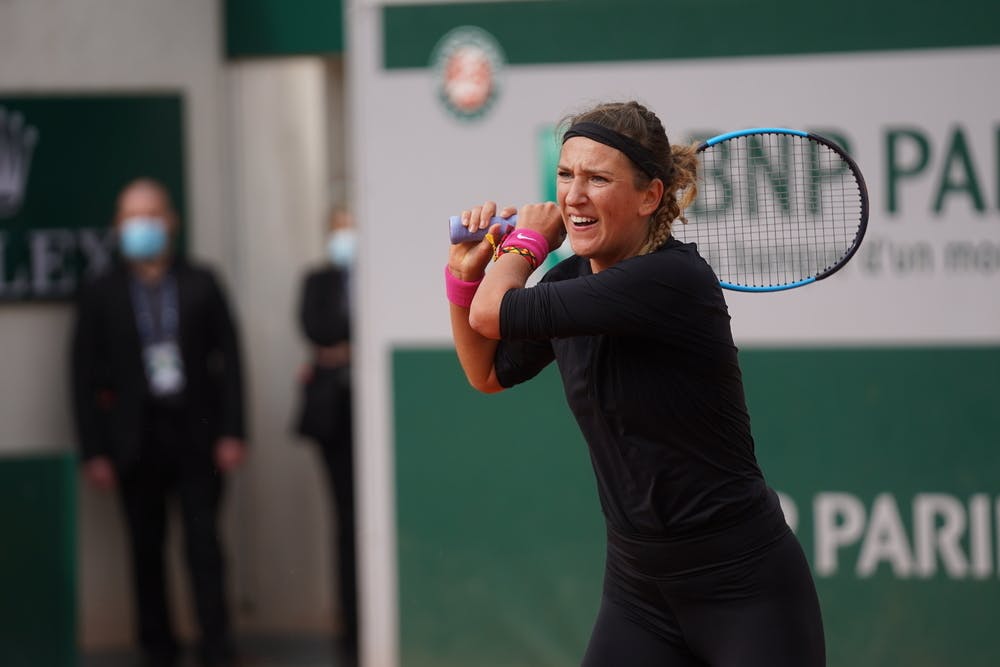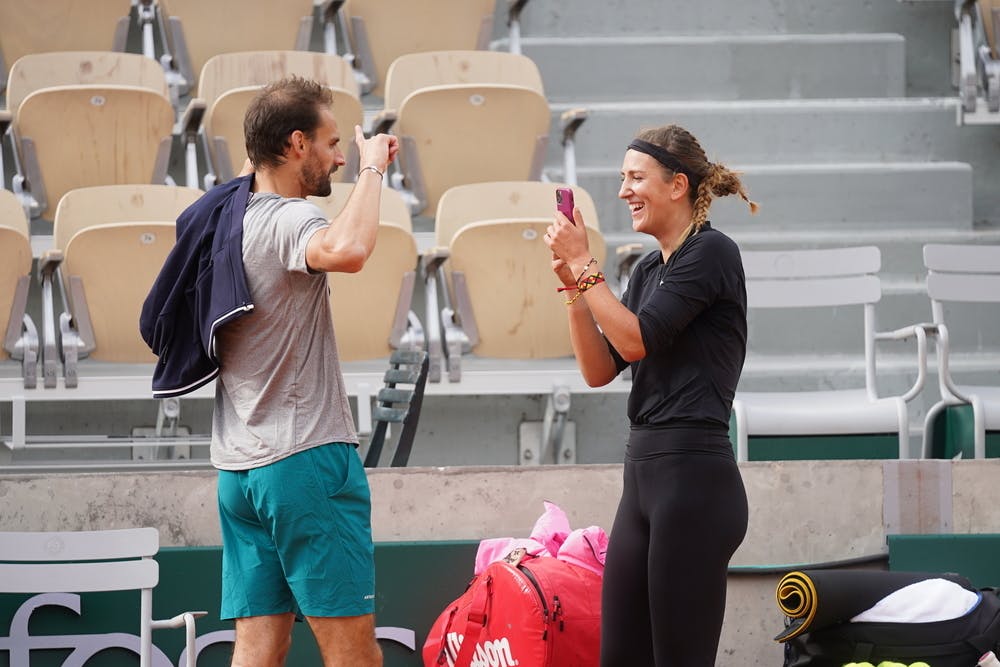Off-court struggles scuppered plans as recently as January, ruling out an Australian summer of tennis for the dual Grand Slam champion.
But it was during the tour’s Covid-19 hiatus the 31-year-old noticed a real change.
“I would say the last few years I had a lot of opportunities to test out my mental strength,” Azarenka told rolandgarros.com. “I felt that I was able to handle that really well off court, then on court was more difficult.
“You just can't sometimes handle all the pressure that comes at you. I felt that maybe around June is where I started to feel like doing some new ways of approaching some situations.
“Then it kind of started from there, building up on that. I started to understand and feel myself better around June, end of June.”
To those on the outside her results alone pointed to a dramatic shift, while her persona on the practice court and in interviews suggested an Azarenka more at ease with the world.
 ROLAND-GARROS
18 May - 7 June 2026
ROLAND-GARROS
18 May - 7 June 2026



